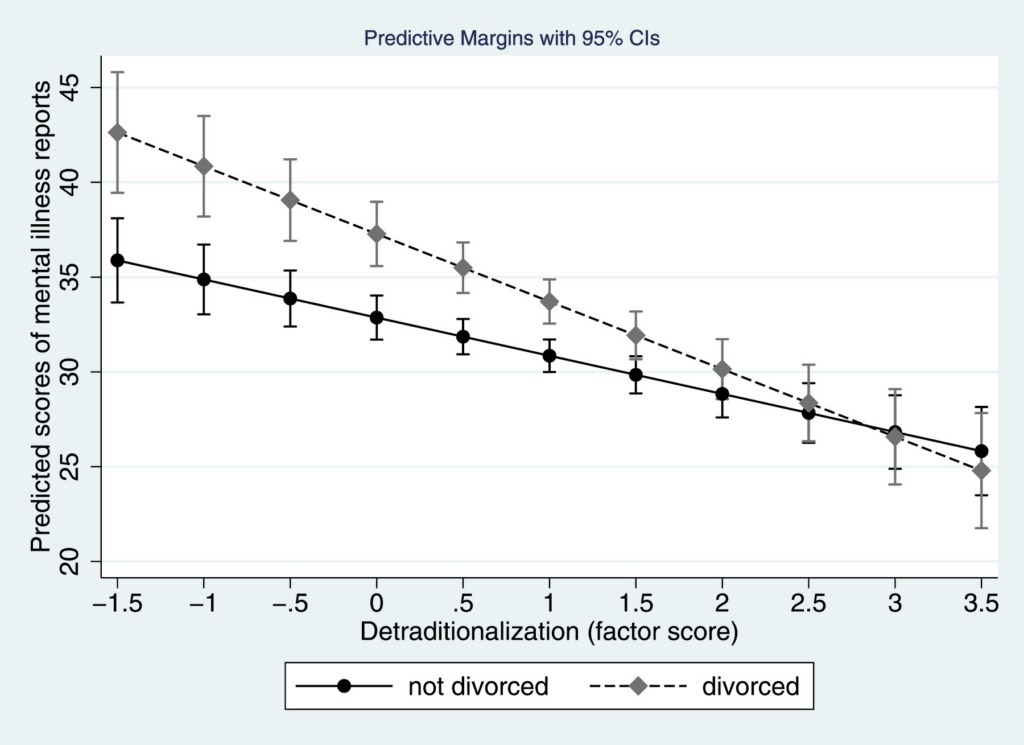
In this study, we address the question of whether individuals that live in more detraditionalized countries have higher levels of mental illness and mental health professional care use. We argue that it is meaningful to consider the different facets of detraditionalization, that is the level of secularization, the ethos of personal autonomy, and self-realization, the erosion of traditional gender roles when understanding patterns of mental illness reports and mental health professional care use. We use data collected in 2010 in 25 European countries by Eurobarometer and find that, generally speaking, people living in more detraditionalized countries are more inclined to use mental health professional care, and that they, on average, report less mental illness than people in less detraditionalized countries. Furthermore, not all forms of adversity result in higher levels of mental health professional care use in the more detraditionalized countries. This is the case only for those experiencing financial strain while for those experiencing unemployment or divorce this was not the case. Furthermore, in more detraditionalized countries, the experience of divorce was related to fewer mental illness reports, a result that could be linked to processes such as the erosion of the traditional institution of marriage and the normalization of divorce in these societies.
Pop, Ioana, Femke Roosma, and Peter Achterberg. “Detraditionalization, mental illness reports, and mental health professional care use in Europe.” European Sociological Review (2023).
https://academic.oup.com/esr/advance-article/doi/10.1093/esr/jcac077/6984701?login=false
